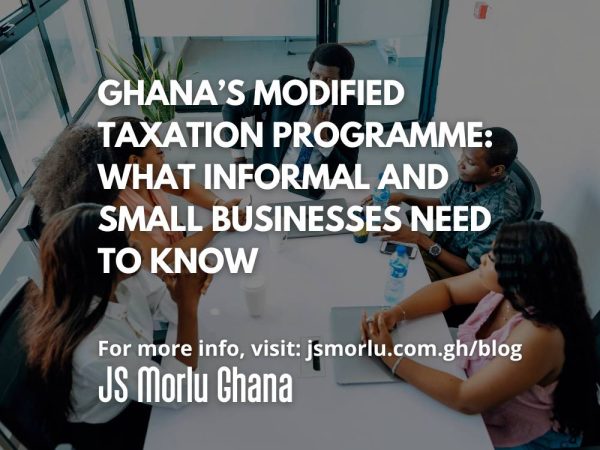The Ghana Revenue Authority (GRA) is rolling out a new Modified Taxation Programme aimed at simplifying tax compliance for informal sector workers and small businesses. This move, set to take effect on July 1, marks a significant policy shift intended to expand Ghana’s tax base and improve revenue mobilization from a historically underserved segment of the economy.
Why the New System?
Ghana’s informal sector accounts for a large portion of economic activity but remains largely outside the tax net. Many micro and small business operators cite complex tax systems, unclear obligations, and a lack of engagement as reasons for non-compliance. The Modified Taxation Programme is designed to address these barriers by introducing a simplified, flexible tax framework.

Key Features of the Modified Tax System
Under the new programme:
- Businesses with annual turnover under GHS 20,000 will pay a fixed quarterly tax of GHS 25, GHS 35, or GHS 45, depending on their income level.
- Businesses earning between GHS 20,000 and GHS 500,000 annually will be taxed at 3% of their gross turnover.
- The system targets informal workers and micro enterprises who are not currently registered with the GRA.
This structure replaces more complex filing and calculation requirements with a flat, predictable payment model aimed at making compliance easier and more accessible.
Implementation and Engagement Strategy
To build awareness and encourage voluntary compliance, the GRA is taking a grassroots approach:
- Field Engagements: GRA officials will visit local markets and trading centers to speak directly with business operators. These visits are part of a broader public education campaign.
- Quarterly Stakeholder Meetings: The GRA has committed to holding regular meetings with key business associations like the Ghana Union of Traders Association (GUTA) to gather feedback, resolve concerns, and ensure transparency.
- Simplified Registration: Efforts will be made to streamline the process of tax registration and filing for informal and small-scale enterprises.

Institutional Support and Feedback
Several stakeholder groups have publicly supported the programme. Speaking at the launch of a tax compliance research report, Dr. Alex Kombat, Assistant Commissioner for Research and Policy at the GRA, described the initiative as a “shift from traditional tax methods” toward a model that emphasizes fairness and accessibility.
During an engagement with GUTA, Acting Commissioner General Anthony Kwasi Sarpong reiterated the agency’s commitment to listening to the concerns of small traders and incorporating their feedback into policy refinement. GUTA President Dr. Joseph Obeng welcomed the approach, emphasizing that consistent dialogue is key to building trust in the tax system.
What’s Next?
While the formal rollout begins on July 1, the GRA is currently focused on public education, field visits, and early consultations with trade groups. Small business operators and informal sector workers should expect increased outreach efforts in the coming weeks.
For those affected, now is the time to seek clarity on your business’s income level, understand your new tax obligations, and prepare for registration. The GRA’s local offices and outreach teams will be providing assistance during the transition.

Final Thoughts
The Modified Taxation Programme represents a major effort to formalize and support Ghana’s informal economy by removing longstanding barriers to tax compliance. Its success will depend on sustained outreach, clear communication, and continued collaboration between tax authorities and business communities.
If fully embraced, this system could improve public revenue, expand access to business support services, and ultimately create a more equitable tax environment for all.
